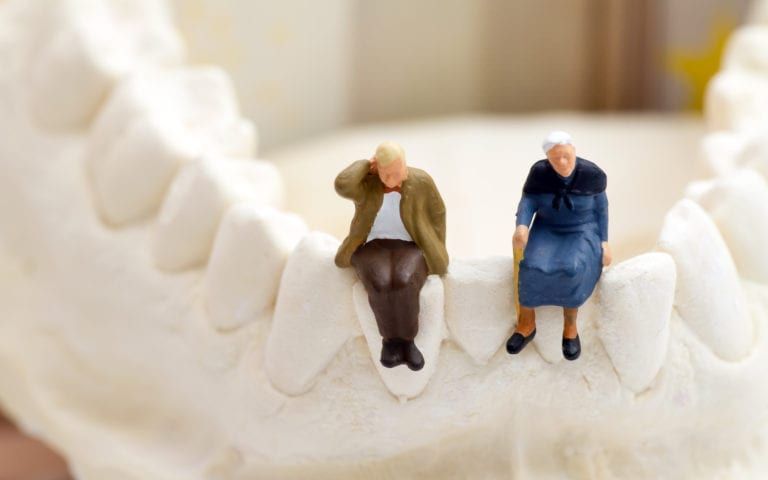How Alzheimer’s Disease Impacts Patient’s Oral Health

Alzheimer’s disease most often impacts them in traumatic ways for many families, causing irreversible side effects that form great distress among loved ones. The impact of this disease needs more awareness to help foster understanding and compassion. On the medical side of this condition, physicians, researchers, and specialists all need to work together to foster a better comprehension of how their specializations in diseases and disorders could potentially find resources to better help patients with Alzheimer’s disease. This neurodegenerative disorder is the sixth leading cause of death within the United States. Because of the gradual decline it causes, research continues to look for possible correlations that could potentially lead to a cure. For dentists and orthodontists, this means looking into our profession for what could connect.
How Alzheimer’s Disease Hinders Oral Care
Alzheimer’s disease doesn’t just affect memory, behavior, and cognitive thinking – it affects every aspect of our health. Alzheimer’s disease takes away the ability to memorize and perform simple tasks, such as brushing and flossing and puts us at a great disadvantage at fighting various diseases. Even while oral hygiene may be a simple task to perform, oral hygiene may be neglected for those suffering from these conditions, resulting in the onset of serious, chronic oral diseases. This progressive brain disorder can also inadvertently lead to diseases of the heart, liver, and bloodstream when diseases compound on one another, leading to a greater risk of diabetes, stroke, and heart disease later on in life.
Basic oral care needs to be met to prevent these various diseases, and most often, Alzheimer’s patients who neglect their oral health, there rises an increased risk of developing conditions such as:
-
Cavities: Plaque and tartar buildup can occur if basic brushing and flossing habits aren’t at play, which can cause cavities.
-
Gum Disease: When bacteria isn’t fully controlled, gum disease can occur, causing the gums to recede and bleed severely and create a steady decline in oral health.
-
Tooth Loss: Over time, as the progression of cavities, gum disease, and poor bone density occurs, it can result in tooth loss. Alzheimer’s patients are often the most susceptible to tooth loss at this stage.
-
Tooth Sensitivity: Having a lack of proper oral care can result in their teeth becoming more sensitive to temperatures.
-
Halitosis: Chronic bad breath results from the development of harmful bacteria and can create an unhealthy situation for Alzheimer’s patients.
How We Aim To Help Alzheimer’s Patients
Dentists, orthodontists, and other dental specialists all have qualifications and technical skills in helping patients receive the quality oral care they need. In the meantime, researchers within their fields are continuing to search into possible links and connections between oral health and Alzheimer’s disease. When this disease progresses, we strive to provide our patients with the best dental treatments. For more information about how to help your loved ones receive quality dental care, contact your primary dentist to learn more.

Recent Comments